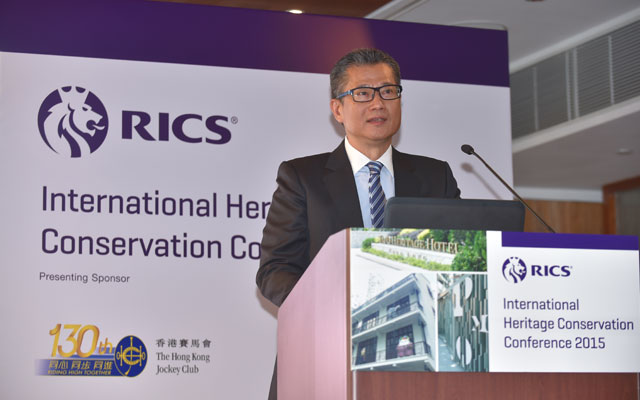Former RICS communications chief, Roy Ying, explains how associations can achieve their objectives through events that satisfy aspirations of members
Why do people join associations?
I work for a professional institution with the responsibility to engage members through all kinds of platforms, activities, programs and channels. One question I often ask my members is what expectations they have on the institution. The answers I get are quite diverse. Some are hoping to learn, some are looking to meet new clients, some are interested in thought leadership, some are joining because it is a job requirement, yet others are just proud to be associated with a global brand.
 What do association managers want?
What do association managers want?
Although associations are not-for-profit organisations, the financial pressure is not so different from the commercial sector. Landlords charge rent for office space, employees need a pay cheque, and suppliers expect to be paid. It is, therefore, quite normal for the average association manager to focus on chasing annual subscription fees, selling event tickets, and marketing sponsorship packages. But association manager should also busy himself with understanding how to meet members’ expectations while delivering a solid financial report.
Is a portfolio of events the answer?
My current role supports the organisation of about 200 events annually across the region. Some generate surpluses, some break even, and a few of them are running at a loss. Through a member-staff partnership arrangement, we are able to map out a calendar of events taking into consideration why events are organised, who the target audience is and what format is the most appropriate. Below is a matrix of members’ expectations and the corresponding types of events that can address their needs.
How to motivate members to help you run these events?
The best way is to let them take ownership via the formation of an organising committee. Of course, the association manager needs to have a strong background in event management and is able to steer the organising committee into making the right decisions. As long as the event objectives are aligned with the members’ expectations, they will want to take ownership in developing content and inviting guests, and may even sponsor something.
An example of this is the Hong Kong International Heritage Conference held earlier this year. In 2014, the Hong Kong government issued a policy consultation on the conservation of built heritage. It spurred my members into forming a special task force to discuss ways to respond to this consultation. There were a range of communication tools we could have used, but I was able to persuade members to take this as an opportunity to create thought leadership, media publicity and government recognition through an international conference.
These were the priorities for members, yet at the same time, the conference was an engaging platform which attracted sponsorship, ticket sales and even membership enquires.
A win-win solution
The best way for association managers to achieve their financial targets is to meet the expectations of members through a calendar of events which members can take ownership of. If the member-staff partnership arrangement is well managed, the end result can be a sustainable source of revenue and a group of engaged members who are proud to be associated with the association.
| What members want | What association managers can offer |
|---|---|
| New clients | Exhibitions, networking cocktails |
| Global branding | Awards, celebration dinners |
| Thought leadership | Round tables, conferences |
| Standards and regulations | Professional forums, conversations with the government |
| Education | Training, e-learning platforms, self-generating content |
| Job opportunities | Internship programmes, recruitment fairs |











